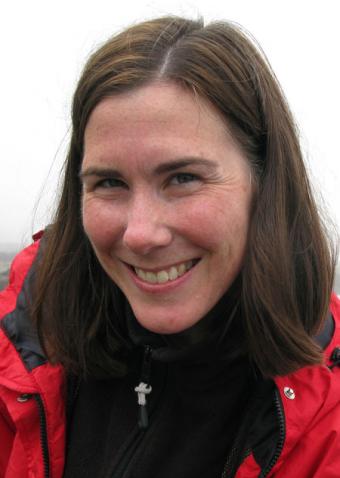PROVIDENCE, R.I. [Brown University] — To influence public policy as well as the decisions of companies and other private institutions, environmental scientists must be good at more than just their research. They must also be effective communicators and leaders. Each year the Leopold Leadership Program at Stanford University names 20 fellows to receive intensive training in those skills. Heather Leslie, the Peggy and Henry D. Sharpe Assistant Professor of Environmental Studies is among the 2015 Leopold fellows, the program announced this week.
The fellows are chosen for their outstanding qualifications as researchers, demonstrated leadership ability, and strong interest in sharing their knowledge beyond traditional academic audiences, according to the announcement. Fellows participate in a week-long training session on leadership and communications, followed by a year of practicing skills that will advance their efforts to lead change.
Leslie, who studies the connections between people and marine ecosystems that can help guide conservation and management, said she was thrilled to have earned a spot in the program founded by Jane Lubchenco, her Ph.D. co-adviser.
“Jane and many others have inspired and encouraged me to share my science in ways that matter for policy and management for a long time,” Leslie said. “Having the opportunity to participate as a fellow will expose me to a new universe of inspirational colleagues. I’m confident it also will take my science in new and exciting directions.”
Leslie said she will study conservation outcomes and approaches.
“I am devoting my Leopold year to exploring different perspectives on conservation success: who contributes, who wins and who loses, and how we can learn from these stories to craft more effective conservation strategies in the future,” she said.

